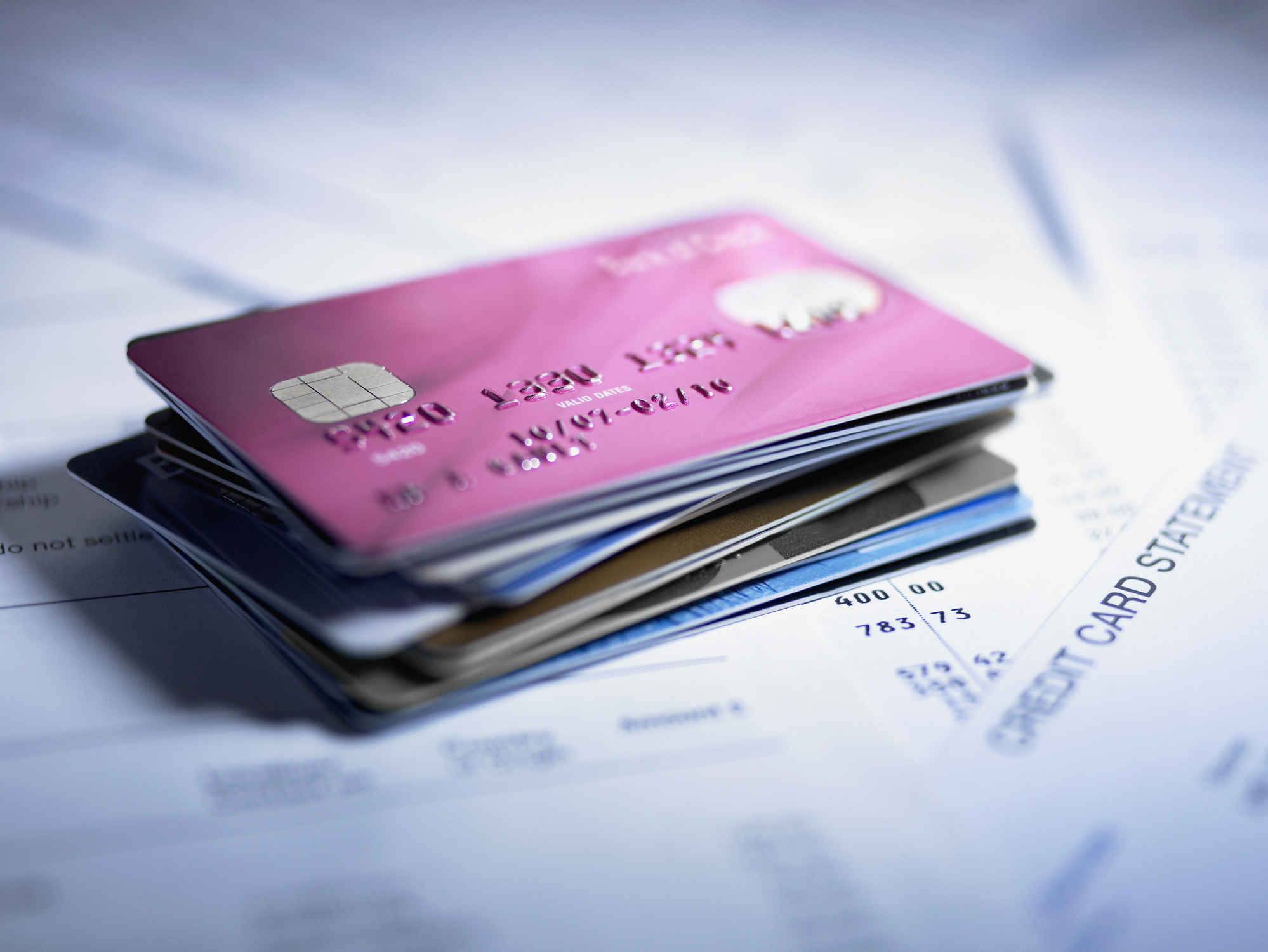Credit Card Debt Hits Record $1 Trillion
Americans' credit card debt is over $1 trillion, the New York Fed reported.


Profit and prosper with the best of Kiplinger's advice on investing, taxes, retirement, personal finance and much more. Delivered daily. Enter your email in the box and click Sign Me Up.
You are now subscribed
Your newsletter sign-up was successful
Want to add more newsletters?

Delivered daily
Kiplinger Today
Profit and prosper with the best of Kiplinger's advice on investing, taxes, retirement, personal finance and much more delivered daily. Smart money moves start here.

Sent five days a week
Kiplinger A Step Ahead
Get practical help to make better financial decisions in your everyday life, from spending to savings on top deals.

Delivered daily
Kiplinger Closing Bell
Get today's biggest financial and investing headlines delivered to your inbox every day the U.S. stock market is open.

Sent twice a week
Kiplinger Adviser Intel
Financial pros across the country share best practices and fresh tactics to preserve and grow your wealth.

Delivered weekly
Kiplinger Tax Tips
Trim your federal and state tax bills with practical tax-planning and tax-cutting strategies.

Sent twice a week
Kiplinger Retirement Tips
Your twice-a-week guide to planning and enjoying a financially secure and richly rewarding retirement

Sent bimonthly.
Kiplinger Adviser Angle
Insights for advisers, wealth managers and other financial professionals.

Sent twice a week
Kiplinger Investing Weekly
Your twice-a-week roundup of promising stocks, funds, companies and industries you should consider, ones you should avoid, and why.

Sent weekly for six weeks
Kiplinger Invest for Retirement
Your step-by-step six-part series on how to invest for retirement, from devising a successful strategy to exactly which investments to choose.
Americans' credit card debt reached a new high this summer, according to a new report from the New York Federal Reserve released Tuesday.
Credit card balances rose by $45 billion in the second quarter, according to the report, resulting in a peak $1.03 trillion. In the first quarter, that number was $986 billion, making this a 4.6% increase. That increase came alongside an increase in total household debt over the same period to $17.06 trillion.
"Credit card delinquencies continue an upward trend, a growing sign that consumers are feeling the pinch of high prices and lower savings balances than they had just a few years ago," Elizabeth Renter, data analyst at NerdWallet, said in response to the NY Fed's report, according to CNBC.
From just $107.88 $24.99 for Kiplinger Personal Finance
Become a smarter, better informed investor. Subscribe from just $107.88 $24.99, plus get up to 4 Special Issues

Sign up for Kiplinger’s Free Newsletters
Profit and prosper with the best of expert advice on investing, taxes, retirement, personal finance and more - straight to your e-mail.
Profit and prosper with the best of expert advice - straight to your e-mail.
Inflation has been easing in recent months but is still a factor for Americans.
Best Balance Transfer Credit Cards, which may help lower your credit card interest rate and monthly payments.
David Payne of Kiplinger explained, "The easing mostly happened because big price increases that happened just over a year ago are no longer in the year-over-year calculation, but there has been a gradual slowing of monthly price pressures since the beginning of 2023, as well." Food prices, for example, are still generally high, but the price increases on those categories are slowing down.
Meanwhile, the Federal Reserve continued raising interest rates in July in its continued attempt to combat inflation. That means that interest rates on credit cards have also been on the rise, making it even more important to pay off credit card debt.
Strategies to pay off credit card debt
To pay off credit card debt, Kiplinger recommends taking a few steps:
- Find your credit score to be able to assess your options
- Figure out the extent of your debt like by using a spreadsheet to see the combined balances on multiple credit cards. This accounting should also include the interest rate on each card
- Choose the right approach to pay off your debt. This could be the "avalanche" approach, beginning with cards with the highest interest rates and balances, the "snowball" approach, beginning with paying off low-balance debts first to fuel your motivation, or the "blizzard" approach, where you start with a snowball and move to the avalanche
If you are working through credit card debt, as the data shows, you're clearly not alone. This New York Fed report comes shortly after a WalletHub study said American credit card debt was over $1.1 trillion.
That study further said that Alaska ranked first as the state with the highest credit card debt, followed by the District of Columbia and Colorado. Each had a median credit card debt of over $3,000.
Related Content
Profit and prosper with the best of Kiplinger's advice on investing, taxes, retirement, personal finance and much more. Delivered daily. Enter your email in the box and click Sign Me Up.

Alexandra Svokos is the digital managing editor of Kiplinger. She holds an MBA from NYU Stern in finance and management and a BA in economics and creative writing from Columbia University. Alexandra has over a decade of experience in journalism and previously served as the senior editor of digital for ABC News, where she directed daily news coverage across topics through major events of the early 2020s for the network's website, including stock market trends, the remote and return-to-work revolutions, and the national economy. Before that, she pioneered politics and election coverage for Elite Daily and went on to serve as the senior news editor for that group.
Alexandra was recognized with an "Up & Comer" award at the 2018 Folio: Top Women in Media awards, and she was asked twice by the Nieman Journalism Lab to contribute to their annual journalism predictions feature. She has also been asked to speak on panels and give presentations on the future of media and on business and media, including by the Center for Communication and Twipe.
-
 5 Vince Lombardi Quotes Retirees Should Live By
5 Vince Lombardi Quotes Retirees Should Live ByThe iconic football coach's philosophy can help retirees win at the game of life.
-
 The $200,000 Olympic 'Pension' is a Retirement Game-Changer for Team USA
The $200,000 Olympic 'Pension' is a Retirement Game-Changer for Team USAThe donation by financier Ross Stevens is meant to be a "retirement program" for Team USA Olympic and Paralympic athletes.
-
 10 Cheapest Places to Live in Colorado
10 Cheapest Places to Live in ColoradoProperty Tax Looking for a cozy cabin near the slopes? These Colorado counties combine reasonable house prices with the state's lowest property tax bills.